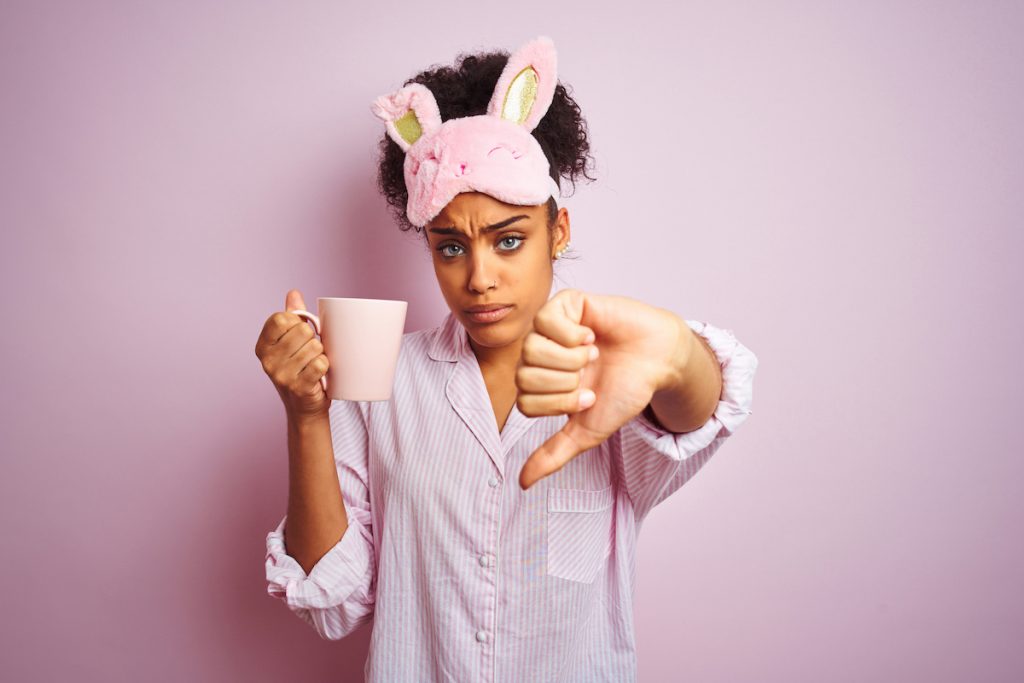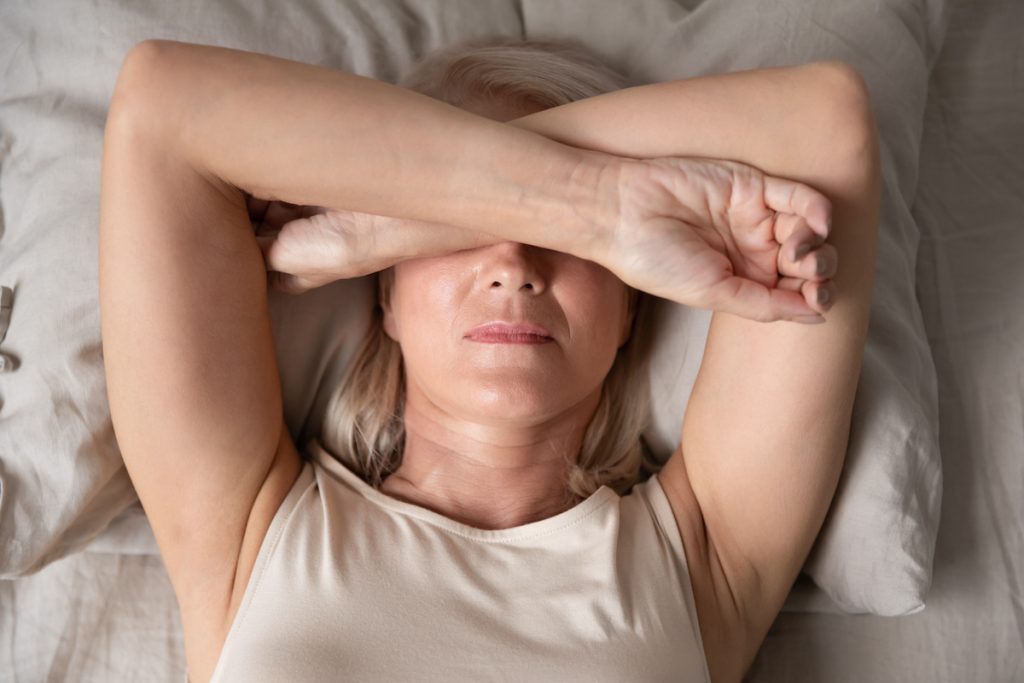Insomnia is a common sleep disorder that most people undergo on their lives at least once. Insomnia makes it difficult to fall asleep or stay asleep. It also causes you to wake up too early without being able to go back to sleep, and people with insomnia are frequently tired. This sleep disorder causes irritability and exhaustion, overall affecting quality of life. Not being able to find the root stops many people from curing their insomnia. Here are the most common habits that cause those sleepless nights.
1. Too much screen-time
If you’re constantly using your phone, computer, or TV before bed time, you can’t sleep because it’s emitting a blue light. If you really can’t give up that nocturnal screen addiction right now, we recommend turning hour devices to “Night Shift” or a similar setting that emits a soothing orange light that doesn’t interfere with sleep cycles as much.

2. Stress
After the coronavirus pandemic, is there anyone out here who isn’t stressed? Common stressors include worries about work, health, school, finances, or relationships. Exercise can increase endorphins and reduce stress, so maybe include some yoga or pilates before bedtime, or even when you wake up for a better night of sleep.

3. Late night eating
We’re all guilty of this sometimes — late night munchies happen to everyone, but you should try to keep it to light and healthy portion-controlled snacks to avoid poor digestion and heartburn, both of which can keep you tossing and turning throughout the night. Plus, it’s just straight up uncomfortable to lie down when you’re extremely full.

4. Work or travel schedule
We can’t always control this, but it might be a reason why you’re a chronic insomnia sufferer.
Circadian rhythms are basically your internal clock, controlling your metabolism, body temperature, and sleep-wake cycle. They’re negatively affected by jet lag, constantly changing shifts, or working a very early or very late shift. Inconsistent and random bedtimes gets our body clock confused.

5. Spending too much time in bed
Did you know that your bed should only be reserved for sleep and lovemaking? Doing other things like working, watching TV, and eating in bed can make it harder to sleep at night. Keep the meals and work or study sessions at the dining room table!

6. Medication
Often, prescription drugs for all kinds of uses can end up affecting sleep negatively. This includes antidepressants and meds of blood pressure or asthma. Even OTC meds for pain, allergy, and weight loss can contain stimulants including but not limited to caffeine.

7. Breathing problems and sleep disorders
Tons of people suffer from sleep apnea and have no idea. Sleep apnea is a sleep disorder that causes people to stop breathing periodically multiple times over the night. There’s also restless legs syndrome, which creates an unpleasant sensation in your legs that makes you want to move them, reducing quality of sleep and ability to fall asleep. Similarly, nasal allergies and asthma can also burden your breathing during slumber.

8. Stimulants
Say goodbye to alcohol, nicotine, and caffeine before bed. Some people are highly sensitive, which means they can’t even have green tea! Stick to herbal instead, and if you need soda, avoid Coca-Cola and have a clear soda instead, like Sprite or Ginger Ale.

9. Ageing
Insomnia can become more common as you age. This is because as we get older, our sleep patterns change, and so do our activities. Conditions such as arthritis or chronic pain, as well as an increased number of medications can all contribute to insomnia as the years go by.

10. Napping
Even though naps are usually thought to decrease your tiredness, sometimes they can do the opposite. Napping (especially late in the afternoon for long periods of time) can totally throw off your circadian rhythms and make it difficult to fall asleep later on.

11. Mental illness
Stress is one thing, but people with depression, anxiety, bipolar, and OCD are much more likely to suffer from insomnia. If you’re undiagnosed but are experiencing any mental health troubles, it could be why your sleep schedule is suffering. People are frequently diagnosed with metal disorders after getting help for their insomnia.

12. Menopause
The change is tough for middle-aged women to deal with, and it gets even harder if one of your side effects is insomnia and sleeplessness. The decline of estrogen goes hand with hands with disrupted sleep since common symptoms are hot flashes and sweats as well as mental health issues.
